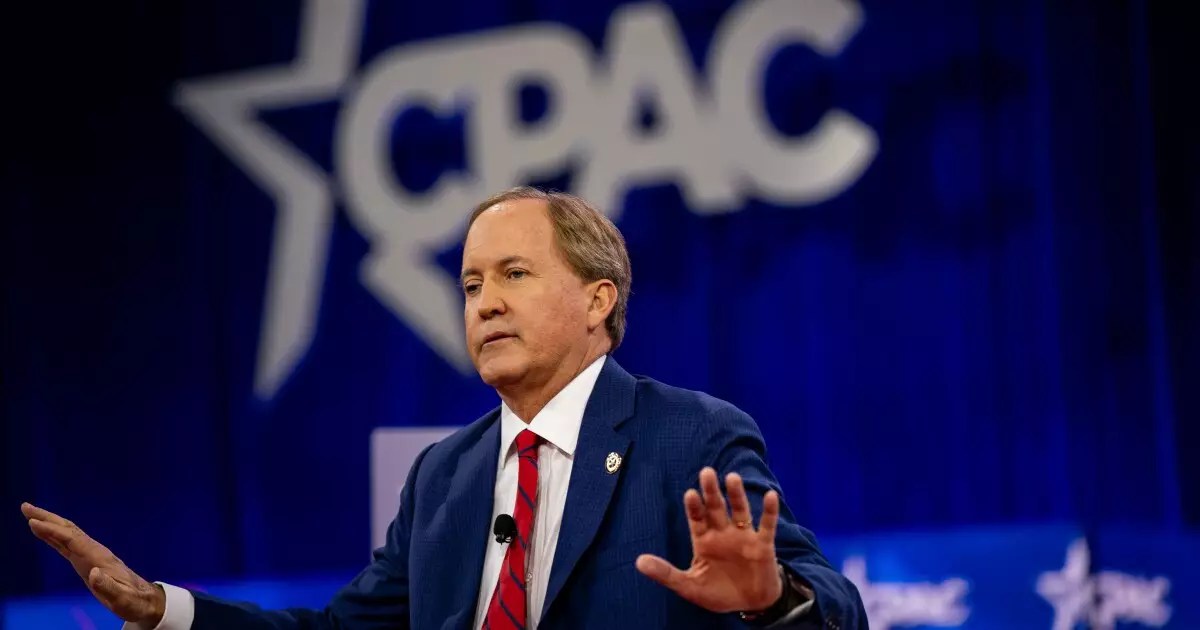The financial ties between major banks and state governments are undergoing significant scrutiny amid shifting political and environmental landscapes. A recent episode involving Texas Attorney General Ken Paxton illustrates the complexities of these relationships, particularly regarding environmental policies and the fossil fuel industry. The termination of Wells Fargo’s membership in the Net-Zero Banking Alliance (NZBA) could signal a broader recalibration within the financial sector, as both banks and governments navigate rising scrutiny over environmental, social, and governance (ESG) policies.
In October 2023, Attorney General Paxton initiated a review of several major financial institutions, including Wells Fargo, under a Texas law passed in 2021 that prohibits state contracts with entities that “boycott” the fossil fuel industry. This legal framework is evolving amid a national discourse on the roles of finance and sustainability. While on review, Wells Fargo continued to underwrite high-profile bond deals in Texas, revealing a tension between operational business practices and legal imperatives.
The basis for the scrutiny stems from a growing pushback against ESG policies perceived as hostile to traditional energy sectors. Texas, often viewed as a stronghold for the oil and gas industry, is at the forefront of this movement, leading to the blacklisting of several banks that support initiatives such as the NZBA aimed at achieving net-zero emissions by 2050. Paxton’s emphasis on energy independence reflects a robust commitment to supporting the local economy that heavily relies on fossil fuels.
Wells Fargo’s decision to withdraw from the NZBA is emblematic of a strategic pivot in response to both regulatory and market pressures. By distancing itself from the NZBA, the bank aims not only to align with Texas’s state laws but also to reinforce its ties with the fossil fuel industry, a significant client base in the state. In a statement, Paxton acknowledged Wells Fargo’s decision as a “step in the right direction,” emphasizing the need for financial institutions to dissociate from ESG policies that may undermine the oil and gas sectors.
However, the constitutionality of such exclusionary policies is under legal challenge. Business groups assert that regulating financial entities based on their ESG commitments infringes on free commerce and could set a troubling precedent nationally. The lawsuit poses a question not just about regulations in Texas but also about how similar laws may impact financial practices elsewhere in the country.
Despite being under review, Wells Fargo has managed significant transactions within Texas. Notably, the bank served as a senior underwriter in major bond sales, including a $723.5 million revenue bond deal for the Dallas Fort Worth International Airport, recognized as the Southwest region winner in The Bond Buyer’s 2024 Deal of the Year Awards. Such transactions highlight the banks’ continued operational presence in Texas, driven by a resilient demand for funding infrastructure projects.
The capacity for Wells Fargo to engage in these strategic placements underlines a crucial aspect of the financial landscape in Texas—banks must remain adaptable, balancing regulatory scrutiny with the demand for capital in a booming state economy. Other banks also participated in similar underwriting activities during their own reviews, which raises questions about the implications these regulations have on competitiveness in the municipal bond market.
As Texas maintains a staunch position against ESG-aligned banking practices, the implications for firms like Wells Fargo could reverberate well beyond the state’s borders. This case offers a lens through which we can analyze the evolving relationship between financial institutions and state governments. With potential legal challenges on the horizon, the outcomes of these reviews could redefine investment strategies nationwide.
The Texas situation stands at a critical juncture where the complex interplay of environmental responsibility, economic interests, and legal implications will shape the future of finance. The decisions made today will define not only the trajectory of banks like Wells Fargo but also the broader conversation surrounding sustainable finance amidst a cry for energy independence. The question remains whether this state-centric approach could influence how financial institutions engage with ESG metrics in the long run.


Leave a Reply